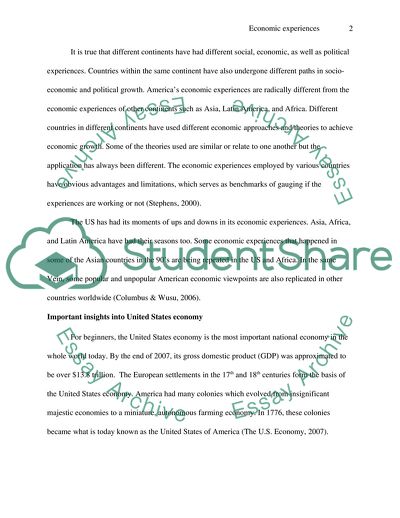Cite this document
(Economic Experiences of the United States in Relation to Economic Expe Essay, n.d.)
Economic Experiences of the United States in Relation to Economic Expe Essay. https://studentshare.org/macro-microeconomics/1716490-what-have-the-economic-experiences-of-asia-latin-america-and-africa-to-tell-us-about-the-advantages-and-limitations-of-our-own-economic-viewpoint-compair-and
Economic Experiences of the United States in Relation to Economic Expe Essay. https://studentshare.org/macro-microeconomics/1716490-what-have-the-economic-experiences-of-asia-latin-america-and-africa-to-tell-us-about-the-advantages-and-limitations-of-our-own-economic-viewpoint-compair-and
(Economic Experiences of the United States in Relation to Economic Expe Essay)
Economic Experiences of the United States in Relation to Economic Expe Essay. https://studentshare.org/macro-microeconomics/1716490-what-have-the-economic-experiences-of-asia-latin-america-and-africa-to-tell-us-about-the-advantages-and-limitations-of-our-own-economic-viewpoint-compair-and.
Economic Experiences of the United States in Relation to Economic Expe Essay. https://studentshare.org/macro-microeconomics/1716490-what-have-the-economic-experiences-of-asia-latin-america-and-africa-to-tell-us-about-the-advantages-and-limitations-of-our-own-economic-viewpoint-compair-and.
“Economic Experiences of the United States in Relation to Economic Expe Essay”. https://studentshare.org/macro-microeconomics/1716490-what-have-the-economic-experiences-of-asia-latin-america-and-africa-to-tell-us-about-the-advantages-and-limitations-of-our-own-economic-viewpoint-compair-and.


